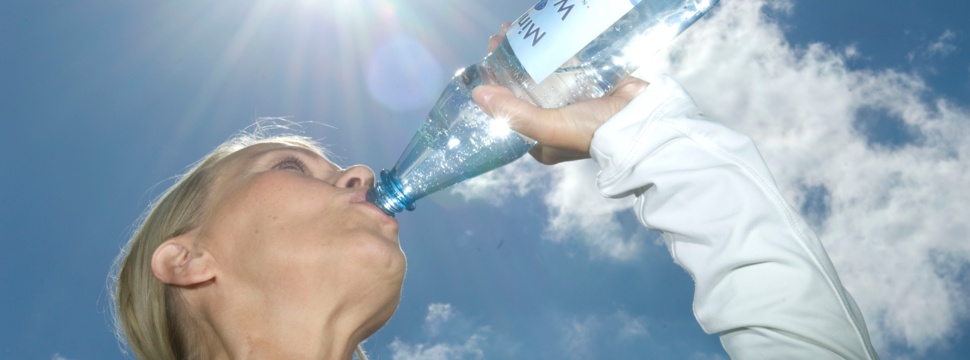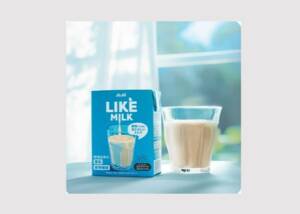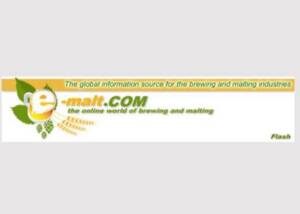Industry initiative Climate Neutrality 2030 started - VDM and GDB accompany Mineral Water Industry Towards Climate Neutrality
News General news
The German mineral water industry is further expanding its commitment to climate protection and launching the industry initiative "Climate Neutrality 2030". By 2030 at the latest, the entire process chain of natural mineral water is to be made climate neutral. With this initiative, the Verband Deutscher Mineralbrunnen (VDM) and the Genossenschaft Deutscher Brunnen (GDB) are accompanying the mineral water industry on its path to climate neutrality. As part of the International Green Week 2021, the VDM and the GDB are presenting the industry-wide commitment to climate protection.

Climate change is one of the greatest challenges of our time. Its increasingly noticeable effects make ambitious climate protection targets necessary. The need for action by individual companies and entire sectors of the economy is high. "For the mineral water industry and the natural product mineral water, active climate protection means both protecting water as a resource and investing in the future," emphasized VDM Chairman Dr. Karl Tack at the launch press conference for the industry's Climate Neutrality 2030 initiative. German mineral water companies have always accepted their social responsibility by operating sustainably. Some mineral springs are now also already operating in an exemplary climate-neutral manner. "Our goal is for not just individual companies, but the entire mineral water sector, to take the path to climate neutrality by 2030. We want to achieve the goal well ahead of the 2050 target set by the international community, so that we can continue to live up to the pioneering role of the mineral water industry in terms of sustainability and environmental protection with mineral water as a natural product," Tack continued.
With the Climate Neutrality 2030 initiative, VDM is supporting its member companies in making a significant contribution to climate protection. "The initiative focuses on the effective avoidance and reduction of greenhouse gas emissions and the complete offsetting of the remaining emissions along the entire process chain of the natural product mineral water. In concrete terms, then, the aim is for mineral springs to make the CO2 footprint of natural mineral water climate-neutral by 2030 at the latest," says VDM Managing Director Udo Kremer, explaining the goals of the industry initiative. To achieve this, the initiative aims to take full account of Scopes 1 to 3 in accordance with the Greenhouse Gas (GHG) Protocol. In addition to avoiding direct emissions resulting from the extraction and bottling of the natural product mineral water (Scope 1), the focus is particularly on converting operations to the use of renewable energies (Scope 2) and reducing emissions in upstream and downstream processes such as packaging and transport (Scope 3) as far as possible. The remaining, unavoidable CO2 emissions are to be offset by climate protection projects.
In the course of this year, VDM will develop the concrete roadmap as well as an industry guide defining uniform criteria and interim targets for the industry and describing specific measures and recommendations for action. "VDM has already concluded framework agreements with experienced compensation providers, with which we achieve economies of scale and support mineral water companies efficiently and effectively in implementing climate protection measures," explains Kremer. The decisive factors in the selection of the compensation providers were a convincing overall concept, seriousness with regard to compensation projects, and expertise in drawing up CO2 balances.
GDB returnable pools become climate neutral
On the way to climate neutrality, GDB supports the mineral water industry in its commitment to climate and environmental protection. By 2030 at the latest, the entire GDB returnable pool system is to be gradually converted to climate neutrality. On the packaging side, GDB is thus making a significant contribution to the industry initiative. "With a market share of more than 40 percent for packaging in the mineral water market and over 70 percent for returnable bottles, we can make an effective contribution to the industry's climate protection initiative," explains GDB CEO Markus Wolff. He added that in the coming years GDB would also successively convert associated parts of the company, such as the PETCYCLE recycling system, as well as other parts of the product range to climate neutrality. "The well-known pearl bottle has already been a symbol of sustainable packaging for decades. In the future, it will also become a role model for climate-neutral beverage packaging."
GDB is achieving the goal of climate-neutral returnable pools by already supplying all new pool bottles last year and, since the beginning of the current fiscal year, all new pool returnable bottles and crates to mineral water companies in a climate-neutral manner. "In the course of the ongoing quality-assured replacement of refillable bottles and crates, the proportion of climate-neutral bottles is thus increasing by an average of around 10 percent per year. By 2030 at the latest, the reusable pools will then be completely climate-neutral," explains Wolff. At the same time, he adds, the proportion of greenhouse gases that have to be offset by compensatory measures will fall as climate protection measures and targets are gradually implemented in the supply chain.
GDB has already achieved its first partial targets. The N containers made of glass launched in 2018 will be the first fully climate-neutral pool in GDB's reusable system. Here, the opportunity is now being taken to retroactively offset the CO2 emissions already incurred for the production of bottles and crates. "In addition, GDB and VDM have already been working in a climate-neutral manner themselves at the Bonn site since fiscal year 2018/19 and 2020, respectively," adds Wolff. "But the main part of the work is still ahead of us. We will now implement this together with the industry."
German mineral water companies operate sustainably and treat natural resources with care as part of their livelihood. With the unique reusable and deposit return system in Germany and investments in modern bottling plants, they have already been making an active contribution to environmental protection for years.










